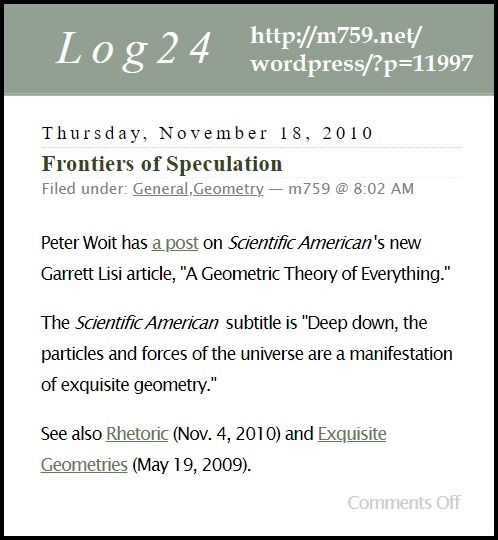Monolith
From James A. Michener‘s The Source:
“Trouble started in a quarter that neither Uriel nor Zadok could have foreseen. For many generations the wiser men of Zadok’s clan had worshipped El-Shaddai with the understanding that whereas Canaanites and Egyptians could see their gods directly, El-Shaddai was invisible and inhabited no specific place. Unequivocally the Hebrew patriarchs had preached this concept and the sager men of the clans accepted it, but to the average Hebrew who was not a philosopher the theory of a god who lived nowhere, who did not even exist in corporeal form, was not easy to comprehend. Such people were willing to agree with Zadok that their god did not live on this mountain– the one directly ahead– but they suspected that he did live on some mountain nearby, and when they said this they pictured an elderly man with a white beard who lived in a proper tent and whom they might one day see and touch. If questioned, they would have said that they expected El-Shaddai to look much like their father Zadok, but with a longer beard, a stronger voice, and more penetrating eyes.
Now, as these simpler-minded Hebrews settled down outside the walls of Makor, they began to see Canaanite processions leave the main gate and climb the mountain to the north, seeking the high place where Baal lived, and they witnessed the joy which men experienced when visiting their god, and the Hebrews began in subtle ways and easy steps to evolve the idea that Baal, who obviously lived in a mountain, and El-Shaddai, who was reported to do so, must have much in common. Furtively at first, and then openly, they began to climb the footpath to the place of Baal, where they found a monolith rising from the highest point of rock. Here was a tangible thing they could comprehend, and after much searching along the face of the mountain, a group of Hebrew men found a straight rock of size equal to the one accorded Baal, and with much effort they dragged it one starless night to the mountain top, where they installed it not far from the home of Baal….”
Rabbi Chitrik died on
Valentine’s Day, 2006,
having had a heart attack
on Feb. 8, 2006–

Grammy Night.

The above monolith is perhaps more
closely related to El-Shaddai than to
Madonna, Grammy Night, and Baal.
It reflects my own interests
(Mathematics and Narrative)
and those of Martin Buber
(Jews on Fiction):
“Among Buber’s early philosophical influences were Kant’s
Prolegomena, which he read at the age of fourteen, and Nietzsche’s
Zarathustra. Whereas Kant had a calming influence on the young mind troubled by the
aporia of infinite versus finite time, Nietzsche’s doctrine of ‘the eternal recurrence of the same’ constituted a powerful negative seduction. By the time Buber graduated from Gymnasium he felt he had overcome this seduction, but Nietzsche’s prophetic tone and aphoristic style are evident in Buber’s subsequent writings.”













